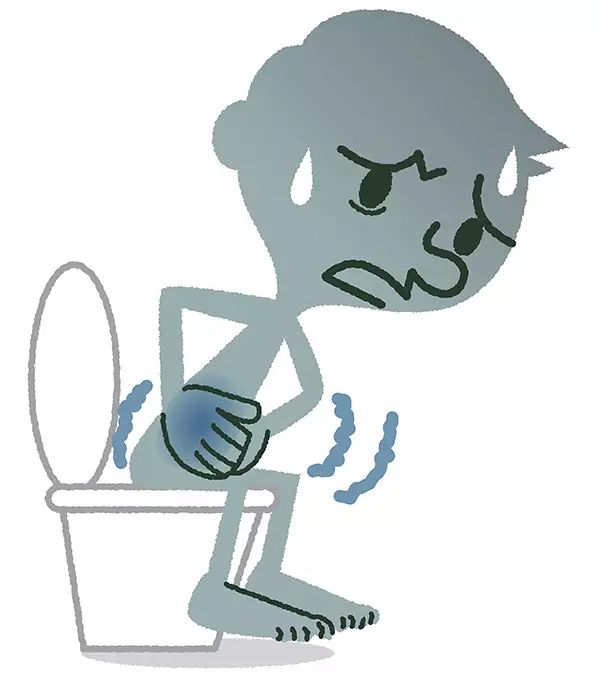Zhu Lingyu / Associate Chief Physician of the Gastroenterology Department, Longhua Hospital Affiliated to Shanghai University of Traditional Chinese Medicine
During the hot summer months, many people commonly experience symptoms of indigestion such as abdominal bloating and loss of appetite, and some may even suffer from abdominal pain and diarrhea. From a Traditional Chinese Medicine (TCM) perspective, the reason for the increased incidence of gastrointestinal diseases in summer is attributed to the ancient observation of “excess heat combined with dampness,” a typical example being what is referred to in Jiangnan as “Zhu Xia” (summer heat). In midsummer, not only are temperatures high, but there is also an abundance of rainfall and humidity, making it easy for heat pathogens to combine with damp pathogens to invade the body. The resulting illness is often characterized as a mixed syndrome of heat and dampness, presenting symptoms such as fever, thirst, fatigue in the limbs, chest tightness, nausea, and loose stools that are unsatisfactory, along with a yellow and greasy tongue coating.

Why is Diarrhea Common in Summer?
Why is diarrhea more common in summer? Firstly, bacterial contamination is a significant factor; under high temperatures, bacteria can easily proliferate, and leftover food or improperly stored cooked food can become contaminated, leading to gastrointestinal infections. Additionally, summer is also the peak season for cockroaches and flies, which can facilitate the spread of pathogens.
Secondly, people tend to drink more water in summer, which dilutes gastric acid and reduces its efficiency, impairing the breakdown of food. Gastric acid is a strong acid with a pH of about 1-2, providing a “barrier” function that kills most pathogens that enter the stomach with food. However, diluted gastric acid has a diminished ability to sterilize. Thirdly, the consumption of raw fruits and vegetables increases significantly in summer. Compared to other seasons, the likelihood of eating raw produce rises, which can lead to gastrointestinal diseases due to bacterial contamination and pesticide residues.
Fourthly, the stimulation from cold drinks can irritate the gastrointestinal mucosa, leading to reduced gastric acid secretion and affecting digestion. The smooth muscles in the intestinal wall are very sensitive to temperature changes; excessive consumption of cold drinks can significantly enhance smooth muscle contraction, even causing spasms and pain. Cold can also accelerate intestinal motility, causing food that is being digested to pass through the intestines too quickly, affecting nutrient absorption and leading to increased bowel movements and diarrhea.
Other factors include the effects of air conditioning. Many people enjoy the coolness of air conditioning, often setting the temperature too low. When entering a cold environment, blood flow is directed to the skin to conserve heat, resulting in reduced blood supply to the gastrointestinal tract, which can impair mucosal repair. Additionally, the heat can lead to poor sleep and decreased immunity, further predisposing individuals to gastrointestinal diseases.
Five Principles for Disease Prevention
So, how can we prevent gastrointestinal diseases in summer?
First, dietary habits should follow the five principles of “warm, soft, light, fresh, and small.”
Warm means avoiding excessive consumption of cold drinks; room temperature food is less stimulating to the gastrointestinal tract and easier to digest. Soft refers to the texture of food; barbecued or fried foods are harder to digest, while steamed or boiled foods are preferable.
Light means reducing the intake of high-fat foods, such as organ meats and fatty pork, while fresh vegetables, lean meats, fish, and eggs are more suitable.
Fresh indicates that food should be fresh; since leftovers are prone to bacterial contamination, it is better to avoid them.
Small refers to eating smaller, more frequent meals. Controlling portion sizes is important to avoid overloading the gastrointestinal system, allowing for timely and efficient digestion.
Second, avoid excessive fatigue and ensure adequate sleep. Fatigue can disrupt the immune balance, and insufficient rest can hinder the repair of the gastrointestinal tract, compromising its barrier function and making it susceptible to gastroenteritis. Air conditioning can be a double-edged sword; while lower temperatures can improve sleep quality and appetite, they may also reduce immunity and affect digestion. If sleep is lacking, consider taking a nap after lunch to replenish some rest.
Third, engage in appropriate exercise. Many people view summer exercise as daunting due to excessive sweating and the impact on cardiovascular function, making it difficult to sustain and increasing the risk of heatstroke and dehydration. While stopping exercise can reduce these issues, a lack of physical activity can lead to decreased bodily function. It is recommended to exercise in a suitable environment, such as in the early morning or evening, or in a climate-controlled gym. Swimming is considered highly beneficial, improving cardiovascular function, aiding in body shaping, and providing relief from the heat, making it an ideal summer activity.
Fourth, maintain a calm mindset. Psychological issues are believed to be triggers for many diseases; negative emotions such as tension and anxiety can lead to health problems. The hot and humid summer, combined with the fast-paced urban lifestyle and the irritability caused by heat and sweating, can foster negative emotions. A common example is Irritable Bowel Syndrome (IBS), which can be triggered by anxiety and stress, manifesting as abdominal pain, bloating, diarrhea, or constipation. A positive mindset can help alleviate such conditions.
In addition to exercise to improve negative emotions, it is also recommended to cultivate hobbies such as reading, listening to music, and participating in social activities to foster a calm and healthy mindset.
Fifth, avoid the dual evils of heat and dampness in summer.
In TCM, external pathogenic factors are categorized as the “Six Excesses”—wind, cold, heat, dampness, dryness, and fire. Summer is dominated by the evils of “heat” and “dampness.” The pathogenic effects of heat are notably seasonal, characterized by three features: heat is a Yang pathogen, inherently hot in nature; heat tends to rise and disperse, damaging fluids and depleting Qi; and heat often combines with dampness. These three characteristics encompass the common diseases that arise in summer, such as cardiovascular diseases, heatstroke, and gastrointestinal diseases.
The phrase “heat often combines with dampness” indicates that heat pathogens tend to invade the body alongside “external dampness,” which tends to obstruct the spleen, leading to spleen and stomach weakness. This weakness can further generate internal dampness, creating a vicious cycle where the newly generated dampness further obstructs the spleen, leading to even greater deficiency of spleen Qi.
Therefore, from a TCM perspective, it is essential to avoid the invasion of the “heat” and “dampness” evils in summer and to strengthen the spleen. In addition to the aforementioned recommendations, TCM dietary therapy suggests the use of fish (such as crucian carp and black fish), Chinese yam (Huai shan), lotus seeds, lentils, coix seeds (Yi yi ren), and mung beans.
This issue was edited by Xing Tan.
Recommended Reading
Why was Justin Bieber banned from performing in China?
We slept on a shared bed without air conditioning, feeling like we were lying in a microwave.

